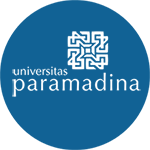REKONSTRUKSI HUKUM BISNIS SYARIAH DALAM MENGHADAPI TRANSFORMASI EKONOMI DIGITAL
Abstract
The transformation of the digital economy presents new challenges for the Islamic business law system, which is based on the principles of justice, transparency, and blessing. The dynamics of the digital economy, such as e-commerce, fintech, and blockchain, require the reconstruction of Islamic business law to remain relevant and responsive to contemporary developments. This study aims to analyze the necessity of reconstructing Islamic business law in response to the digital economy transformation, using a qualitative approach based on literature review. The findings reveal legal vacuums, a lack of specific regulations, and challenges in integrating Sharia principles into the digital ecosystem. Therefore, regulatory updates, the strengthening of Sharia economic legal literacy on social media, and innovation in digital economic fatwas are needed to build a fair, sustainable, and Sharia-compliant business ecosystem aligned with the maqāṣid al-sharī’ah.
Keywords : digital economy, fintech Sharia, Islamic business, legal reconstruction, digital transformation.
Full Text:
PDFReferences
Muslihun, M. (2024). Transformasi Pemasaran Syariah Melalui Teknologi Financial (Fintech) dalam Ekonomi Digital. Revenue Journal: Management and Entrepreneurship, 2(1), 13-18.
Qalbia, F., & Saputra, M. R. (2024). Transformasi digital dan kewirausahaan syariah di era modernitas: Peluang dan tantangan dalam ekonomi syariah di Indonesia. Jurnal Manajemen dan Bisnis Ekonomi, 2(2), 389-406.
Virdi, I. (2022). Kajian Hukum Terhadap Pengembangan Fintech Syariah Di Indonesia. Jurnal Hukum & Pembangunan: Vol, 52(1), 190-219.
https://www.komdigi.go.id/transformasi-digital/ekonomi-digital
Ridhani, F. R., & Lazuardi, A. A. (2023). Ekonomi Digital dalam Perspektif Syariah. Islamic Education, 1(4), 825-834.
Saprida, S., Umari, Z. F., & Raya, F. (2023). Legalitas Transaksi Jual Beli Online di Indonesia. Ekonomica Sharia: Jurnal Pemikiran dan Pengembangan Ekonomi Syariah, 8(2), 315-336.
Ilmi, R., Mawarni, I., & Irawan, F. (2023). Peran E-Commerce Pada Ekonomi Syariah Di Era 5.0. AL-BAYAN: JURNAL HUKUM DAN EKONOMI ISLAM, 3(2), 178-189.
Ali, A., Fahminuddin, M., & Hidayatullah, S. (2022). Finansial Teknologi Syariah Dan Bank Digital. Zhafir: Journal of Islamic…, 4 (1), 47–60.
Hidayati, R., Efendi, I., Delisa, A., & Syawaludin, M. (2024). PENGGUNAAN APLIKASI TIKTOK KAJIAN MASLAHAH DAN MAFSADAH DALAM PERSPEKTIF HUKUM ISLAM. Jurnal Inovasi Hukum dan Kebijakan, 5(4).
Fahmi, M. D., Warman, A. B., & Hayati, R. F. (2023). Literasi Hukum Ekonomi Syariah di Era Digital dan Kontribusinya bagi Penguatan Ekonomi Syariah di Indonesia (Studi terhadap Platform Instagram). Al-Huquq: Journal of Indonesian Islamic Economic Law, 5(1), 20-43.
Hassan, M. K., & Aliyu, S. (2018). A contemporary survey of Islamic banking literature. Journal of Financial Stability, 34, 12–43.
Dusuki, A. W., & Abozaid, A. (2007). A critical appraisal of the challenges of realizing Maqāṣid al-Sharī‘ah in Islamic banking and finance. International Journal of Economics, Management and Accounting, 15(2), 143–165.
Zarqa, M. A. (2003). Islamic finance: Questions and challenges. Journal of Islamic Economics, Banking and Finance, 1(1), 45–58.
Salleh, M. S. (2017). Fintech and the future of Islamic finance. ISRA International Journal of Islamic Finance, 9(2), 103–108.
Nurhidayat, D., & Firmansyah, M. (2021). Regulasi dan pengawasan fintech syariah di Indonesia: Tantangan dan prospek. Jurnal Ekonomi dan Perbankan Syariah, 9(1), 55–68.
DOI: https://doi.org/10.71312/mrbest.v3i2.311
Media Riset Bisnis Ekonomi Sains dan Terapan (MRBEST) Indexed by:
Lembaga Penerbit: Taksasila Edukasi Insani
Kontak: Tri Ananto
Alamat Resmi Penerbit: Jl. Cireundeu Raya No.1A, RT.002/ RW.06, Kelurahan Cireundeu, Kecamatan Ciputat Timur, Kota Tangerang Selatan, Banten 15419.
Copyright of Media Riset Bisnis Ekonomi Sains dan Terapan (e-ISSN: 2987-1875 )
Media Riset Bisnis Ekonomi Sains dan Terapan © 2023 by Taksasila Edukasi Insani is licensed under Creative Commons Attribution-ShareAlike 4.0 International












